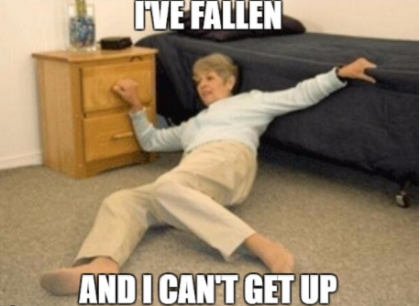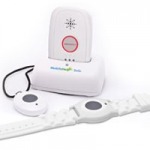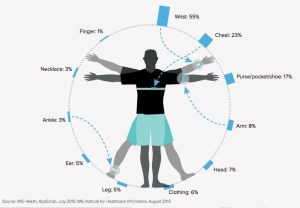As the world speeds up and changes, the way we approach geriatric care for our seniors needs to evolve along with our fast-paced lives. As families get more spread out and seniors end up living alone, it often feels scary to the family to be so far away from their parents and grandparents. Families need a way to make sure their seniors are safe, and receiving the helping hands they need in their old age.
Medical alert devices and systems for seniors are a great way to feel secure leaving your elders living alone. They are great for emergencies, and our seniors reap the benefits of having medical help available at the touch of a button. Unfortunately, popular medical alert systems seniors use have limited functionality in connecting them to their doctors, nurses, pharmacists, and family members. Below we will take a look at conventional medical alert systems and see what improvements we can expect from them in the future.
Medical Alert Systems
Medical alerts are systems or devices used to signal a healthcare professional or an emergency response team that a patient needs their assistance. The most common users of such systems are the elderly, disabled people, or chronically ill patients. Often, these come in the form of a button that can be worn or carried at all times, which can be clicked when the patient requires help, medical attention, or is in an emergency.
Conventional Medical Alert Devices
The most mainstream example is the LifeAlert system that were popularized by their dramatic TV commercials. LifeAlert was founded in 1987 and has been a leader in medical alert systems since then. Unfortunately, LifeAlert and other conventional medical alert devices look pretty much the same in 2017 as it did 30 years ago. This is a shame because while medical alert devices are ‘good enough’ for seniors living on their own to alleviate needing a nursing home, there is so much potential in improving on the product. One company, Alert1 has made improvements to conventional medical alert systems such as LifeAlert such automatic fall detection, GPS tracking, and mobile usability outside the home. You can compare Alert1 to Life Alert here. For the most part though, the medical alert devices seniors use at home can still use major improvements.
Home Health Care for Seniors
Shouldn’t home health care for seniors living alone be simpler. Why is the only popular product in that space the medical alert system, seniors need more options. One of the areas of hope for this is the advent of health monitoring devices. Seniors have much higher rates of chronic illness which often require constant measuring of vital signs, or adhering to a higher number of prescriptions. This can be overwhelming on their own and some products have come out to help the elderly in these aspects, such as prescription organizers (there are even digital one’s now). Another innovative advance has been remote monitoring systems which can take measurements and automatically transfer the data to their doctors and caregivers.
Wearable Monitoring Devices
Elderly monitoring devices are an important step in making it easier for seniors to remain autonomous, but at the same time feel taken care of. These can also be powerful tools as medical alert systems as well, in ways to improve on the old model. Patients can wear wearable devices such as pacemakers, and blood glucose sensors. These constantly monitor the patient and record the data of their status digitally.
Prescription Management Tools
There are also several companies working on medication management services, such as a device which will work like a regular pill organizer but uses technology to automate the dispening on a set time schedule. Alarms ring to let the patient know when it is time to take their dose, and has safety and security features for missed doses. In the future, these can also notify the doctor every time a pill is taken out which can help nurses and doctors keep an eye on their senior patients, and send them notifications if a patient misses a dose.
 |
MedReady Medication Dispenser – $149.95
Prevent missed doses and double dosing with MedReady – an easy to use solution that simplifies the taking of scheduled medicine doses. |
Also, some companies have begun doing home delivery of prescriptions which are prepackaged and easy to open. When a patient has 4 or 5 or more prescriptions, these can often be prepackaged into an easy to use schedule by the pharmacy.
Staying Connected – Caregivers and Family
What is great about getting these devices and systems more involved in elderly care, is that this information can be easily shared. This can create more intimate relationships between seniors and their family and caregivers. Nurses and doctors would have more information readily available about their patient, and therefore make more time for connecting about that information instead of trying to find it.
For families it is important to stay connected. Often we take an active role to take care of each other, whether it be a senior or any family member that needs some assistance or a lot. With the innovations of IT and devices it is becoming easier to be there for your families care management, as well as have the comfort of being informed about our loved one’s health. As medical alarm systems, these types of devices can reach out automatically whenever there’s something we should know.








I love the idea of being able to be connected. Many times my parents don’t tell us about anything until after the fact. Thanks
That’s true, you can keep tabs on them but they can keep tabs on you haha. Thanks for the input, it is important to see every perspective.
Anything that can be done to improve our Seniors’ healthcare is a good idea as long as they feel good about the systems and devices used.
I believe that new technologies – besides improving the results in monitoring the elderly’s health – have to be well explained and accepted by them before being implemented.
For what I read in this article, every device and system mentioned seems very useful.
I would definitely suggest their use of some of them to my parents once they get older, especially the prepacked prescriptions.
Yea they definitely are useful, and it’s an area that will hopefully get more attention soon to solidify these good ideas/direction into usable consumer products.
If you want to see an example of the medication management packaging carepax.com is a pretty cool one I’ve seen.